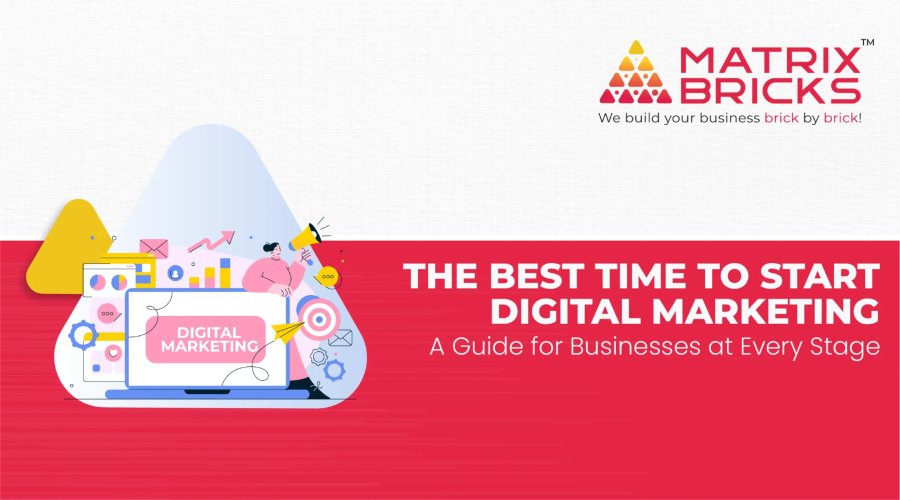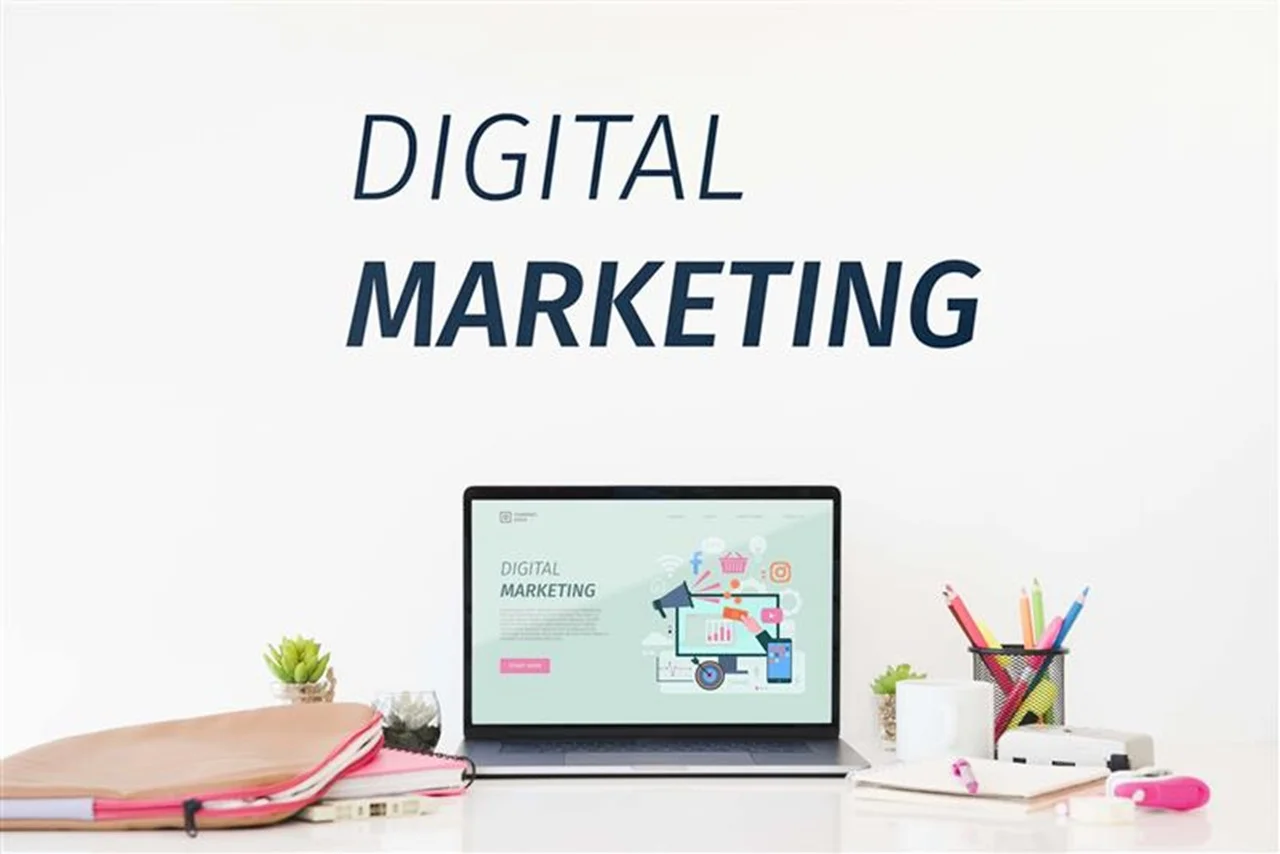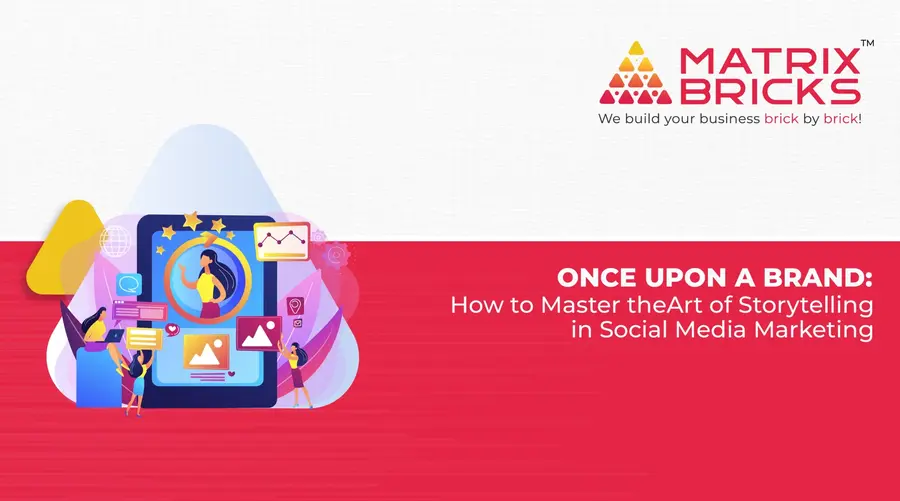
If you own a business or are planning to start one, you’ve probably heard about the power of digital marketing. But when is the right time to get in? Should you start from day one, or is it better to wait until your business is more established? In today’s highly digital world, the answer is simple—there’s no better time than now to begin.
Digital marketing has become an essential component of business success, offering unparalleled reach, cost-effectiveness, and the ability to target the right audience with precision. Many businesses delay their digital marketing efforts, believing they need to be at a certain stage before investing in online promotion. However, this misconception often results in missed opportunities, increased competition, and slower business growth. To stay ahead, it’s crucial to develop a comprehensive digital marketing plan for business that aligns with your goals and objectives.
In this blog, we will explore why digital marketing is crucial at every stage of your business, what you need to start digital marketing, and how to strategically implement it for long-term success. By the end of this article, you’ll have a clear roadmap on when and how to begin, ensuring you maximize your brand’s potential in the digital landscape.

Why Start Digital Marketing Early?
One of the biggest mistakes businesses make is waiting too long to start digital marketing. In an era where consumers rely on online platforms for information, shopping, and entertainment, having a digital presence is no longer optional—it’s a necessity.
Starting digital marketing early allows businesses to build brand awareness before launching their products or services. By establishing an online presence through social media, content marketing, and search engine optimization (SEO), businesses can create anticipation and trust among potential customers. This proactive approach ensures that when your business is ready to sell, there is already a warm audience eager to engage with your offerings.
Moreover, early adoption of digital marketing helps businesses stay ahead of competitors. Companies that delay their marketing efforts often struggle to catch up with brands that have already established a strong online presence. The longer you wait, the harder it becomes to gain traction in an increasingly saturated market. By implementing a well-planned digital marketing strategy for business, companies can establish a strong online foundation, drive growth, and stay competitive in today’s fast-paced digital landscape.
What You Need to Start Digital Marketing
Before diving into digital marketing, it’s important to have a clear strategy and the right tools in place. Many businesses assume they need a large budget to begin, but in reality, effective digital marketing can start with minimal investment.
- A Clear Brand Identity: Your brand identity includes your logo, color scheme, messaging, and tone of voice. Consistency across all digital channels helps build brand recognition and trust.
- A Well-Designed Website: Your website serves as the foundation of your digital presence. It should be user-friendly, mobile-optimized, and designed with clear calls to action.
- Social Media Profiles: Establishing your brand on platforms like Facebook, Instagram, LinkedIn, and Twitter allows you to engage with your audience and build a community around your business.
- SEO and Content Marketing Strategy: High-quality content, including blogs, videos, and infographics, helps attract organic traffic to your website while improving your search engine rankings.
- Paid Advertising Budget: While organic strategies are important, running targeted ads on platforms like Google and Facebook can accelerate growth and reach new customers faster.
- Analytics Tools: Platforms like Google Analytics and social media insights help track performance and refine your strategy based on data.
By having these essentials in place, businesses can launch their digital marketing efforts effectively, regardless of their stage of growth.

Digital Marketing for Startups and Small Businesses
For startups and small businesses, digital marketing can be the key to gaining visibility without breaking the bank. Unlike traditional marketing methods, which often require significant investment, digital marketing offers cost-effective solutions tailored to your budget. By creating a customized digital marketing plan for business, entrepreneurs and small business owners can maximize their online presence, reach their target audience, and drive growth without overspending.
Social media marketing is an excellent starting point for startups. Platforms like Instagram, Facebook, and LinkedIn allow businesses to showcase their brand personality, engage with customers, and build credibility. Content marketing, such as blogging and video creation, positions your business as an authority in your industry, attracting organic traffic and potential customers.
SEO is another crucial aspect for small businesses. By optimizing your website and content for search engines, you increase the chances of being discovered by customers actively searching for products or services like yours. Unlike paid ads, which stop generating leads once the budget runs out, SEO provides long-term benefits by continuously driving traffic to your site.
Additionally, email marketing is a cost-effective way to nurture leads and maintain relationships with customers. By sending valuable content, promotions, and updates directly to your audience’s inbox, you can drive conversions and build brand loyalty over time.
Scaling Digital Marketing for Growing Businesses
As businesses expand, so should their digital marketing strategies. At this stage, the focus shifts from simply building awareness to optimizing conversions, increasing customer retention, and maximizing return on investment (ROI). One effective strategy for scaling businesses is leveraging automation. Email automation, chatbots, and AI-driven marketing tools help streamline customer interactions, ensuring personalized engagement at scale. To achieve this level of sophistication, it’s essential to have a comprehensive digital marketing plan for business that integrates automation, analytics, and customer insights to drive growth and revenue. Additionally, retargeting ads allow businesses to re-engage potential customers who have previously interacted with their website, increasing conversion rates.
Investing in paid advertising becomes even more important as businesses grow. Google Ads and social media ads can be used strategically to target specific customer segments, driving higher-quality leads and increasing sales. Additionally, influencer marketing can be a powerful tool, as partnering with industry experts or content creators can enhance credibility and expand reach.
Growing businesses should also focus on data-driven decision-making. Analyzing key performance indicators (KPIs) such as website traffic, engagement rates, and conversion metrics enables businesses to refine their strategies for optimal results. Without tracking performance, businesses risk investing in ineffective marketing tactics that fail to deliver tangible outcomes.
Digital Marketing for Established Brands
For well-established brands, digital marketing is not just about maintaining presence—it’s about staying ahead of industry trends and continuously innovating. Even businesses with strong reputations must adapt to changing consumer behaviors, emerging platforms, and new technologies.
One major focus for established brands is personalization. Customers expect tailored experiences, and businesses that leverage customer data to provide personalized recommendations, content, and offers tend to build stronger relationships. AI-powered marketing tools help deliver customized interactions, ensuring that every touchpoint aligns with customer preferences.
Additionally, video marketing and interactive content are becoming increasingly important. Consumers engage more with visual and dynamic content, making formats such as live streaming, webinars, and interactive quizzes valuable for maintaining audience interest.
Another strategy for established brands is community building. Engaging with customers through loyalty programs, exclusive memberships, and social media interactions helps foster a sense of belonging, ensuring long-term customer retention and advocacy.
Takeaways: The Right Time to Start is Now
- Digital marketing is crucial at every stage of a business, from startups to well-established brands.
- Early adoption helps build brand awareness, establish credibility, and stay ahead of competitors.
- A solid digital marketing strategy includes website optimization, social media presence, SEO, content marketing, and paid advertising.
- Small businesses can leverage cost-effective digital strategies such as organic social media marketing, SEO, and email campaigns.
- Growing businesses should focus on automation, data-driven decision-making, and paid advertising for scalable success.
- Established brands must continuously innovate, embrace personalization, and foster community engagement to maintain market dominance.
Conclusion: Take Action Today
There is no perfect time to start digital marketing—except for right now. Whether you’re launching a new business or looking to expand an existing one, implementing digital marketing strategies as early as possible will position your brand for long-term success.
By investing in the right tools, staying informed about industry trends, and continually refining your approach, you can harness the power of digital marketing to drive growth, increase visibility, and connect with your audience on a deeper level. Don’t wait for the “right moment”—take the first step today and watch your business thrive in the digital age.




